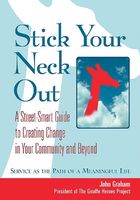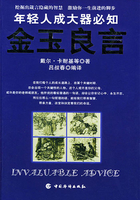Corrado Prizzi lived with his favorite child, Amalia Sestero, who took care of him as she took care of all of her children, her kitchen, her church, and her family's life. The house, as befitted a business executive who could expect rewards that matched his responsibilities, was in Brooklyn Heights with a magnificent view of lower Manhattan island, which could have been a foreign country to Don Corrado.
Neither the don nor his son Vincent owned anything. Houses, cars, furniture, jewelry, and equipment were all held in the names of various companies. As traditional men of respect they felt that it was more important to observe the rules of humility and austerity—and, perhaps to give the Internal Revenue Service no reason to assume that they could afford such luxuries, which would have required more than their meager incomes.
Amalia answered the door serenely, as if the armed doorkeeper were not there, and kissed Charley on both cheeks. "I got some gelu i muluni for you, Charley," she said softly in Sicilian, "for when after Poppa goes to bed."
She led the way to two sliding oak doors and knocked softly. A muffled voice inside told her to come in. She slid open the doors, Charley entered, and she slid them closed again behind him. The room was paneled in dark wood. The furnishings were heavy and somber because it was a room for serious things—eating and meeting. The curtains had been closed. The wax fruit, in the basket at the center of the table, gleamed dully in the light falling from a central lamp, which had a red silk shade with peach-colored fringes, and only half-illuminated faces whose owners, as far as their business meetings were concerned, preferred shadows or darkness.
Vincent Prizzi and Pop sat at the bare dining room table. They were two elderly Italian-American businessmen in black suits, ties, white shirts and shined shoes. Their permanent expressions—pleasant, deferential, and courteous—had tightened into a grimness underscoring the respect paid to them throughout their communities. These included Brooklyn, Queens, Long Island, Miami, Vegas, Atlantic City, Phoenix and LA, the District of Columbia, London, Sicily, Turkey, Iran, Laos, Colombia, Mexico, and southern France, although neither of them had ever been beyond Brooklyn or Vegas.
Vincent Prizzi was built like a tractor. Everything about him was heavy: his speech, his jaw, and his justice. He was a man who took seriousness seriously. When he drank anything he always rushed it carefully around his mouth and through his teeth before swallowing it. He had once been his father's enforcer, when his father had been active in all operations on a day-to-day basis, just as Charley Partanna was Vincent's enforcer now. But he saw as little of Charley as he could because of the humiliation his daughter had inflicted upon Charley and himself almost ten years before. He knew it was wrong but he could not forgive Charley, either, for three reasons: first, for being the subject which had caused this stain upon Prizzi honor; second, for not getting married to some other woman so that the whole thing could be conveniently forgotten by all of them. How could he speak to his daughter or permit her to marry as long as the man she had wronged remained unmarried? Vincent's attitude to Charley was entirely proper, but formal and strained, because everyone who witnessed their relationship was aware that Vincent was incapable of actually feeling the degree of solicitude for Charley that he strained to project, overworking to convey that he wished with everything he felt that he could make up to Charley for what his daughter had done to him. At the same time, sharply aware that this was a weak position for a Boss to be seen in with one of his own people, he resented Charley for being the cause of his pain. And that was the third reason. Consequently, he dealt, not through Charley, his Underboss, but through Angelo Partanna, which only served to increase the powers of both Partannas throughout the family. But when he needed Charley, or when his father told him they needed Charley, he sent for him and suffered his presence.
Vincent's piercing eyes were frightening. They were as unremitting as laser beams, each glance a keraunion, that prehistoric artifact which was once believed to have fallen as thunderbolts. But Vincent's chilling gaze was caused by his nearsightedness and his vanity in refusing to wear eyeglasses. He moved about with difficulty—sometimes with a slight limp, sometimes with a more pronounced one. There were times when he could not walk at all. He sent one hundred dollars a week to the Little Sisters of the Grievous Wounds for them to pray in congress, asking St. Gerardo, patron saint of gout, to intercede for him.
Angelo Partanna was as much taller than Vincent (and ten years older) as Charley Partanna was taller than Angelo. Angelo's sweetness and amiable good cheer about murder and corruption were legendary in the environment. He was a man of brutal loyalty. Other men's pain, cupidity, and punishment were simple commodities to Angelo Partanna. He was dapper in his way. After his wife, Charley's mother, died in 1950 he had emerged as a heavy ladies' man. He had groomed white plates above the ears, below his vulture-bald head, and his moustache was a white Puccini-style. His skin was like dark, lumpy cocoa. His nose was like a parrot's beak, a nose that had been left behind centuries before in the DNA of some Arab invader of western Sicily. Charley's resemblance to his father was a matter of gesture and speech rather than a physical similarity—horses do not look like parrots. But they had the same ball-bearing eyes, opaque to empathy. Both men, father and son, had been bred to serve their feudal lords. Time had only seemed to change for Sicilians.
The Partannas, father and son, were the prime condottieri of the Prizzi family and guarded whatever the Prizzis had, because what the Prizzis had, the Partannas, the Sesteros, and the Garrones—in that order—shared.
"Siddown, Charley," Uncle Vincent said.
Charley pulled up a chair stolidly. He was accomplished at bearing Vincent's sufferance of him.
"I give that tip on the ransom insurance to Eduardo, Charley," Pop said. "He checked it out with the insurance lawyers and they said it would work."
"Good," Charley said.
"Jesus, my gout is killing me," Vincent said.
***
Charley was listening with half his mind. He needed to think about Irene and he couldn't help thinking about Irene. The doctor in the magazine has got to be right, he thought. How else could anybody account for such a tremendous feeling grabbing two people whether it was a convenient time or an inconvenient time? It had to be that Irene and every other woman he had loved had somehow signaled to him that she could bring to him what he imagined, formlessly, he had wanted from his mother. Not that his mother hadn't given him those things, she hadn't deprived him. She had been the most terrific woman in his life. He wanted to be admired and his mother had admired him, so all the more did he want to be admired by women after she had gone. His mother had been busy all day long, so maybe what he wanted as much as getting her love and admiration was all of her time whenever he wanted it. Things like that. Those signals had come off Irene from the first moment they saw each other. And he had fielded the same vibes from Mardell Dupont, the crazy stripper in Jersey City twenty years ago. He had gone out of his skull about that girl and it lasted for fifteen months, until she killed herself. The note said she had done it because they had given her second billing but he always wondered, because it happened the day after he had been indicted for the murder of Bummy Fein and Binky what's-his-name. He thought it all out when it happened and he decided that Mardell had been born and brought up a suicide, like all suicides. But she was some woman—the beautiful way she spoke, like music, which his mother, for all her great points, never did because she had been brought up in the old country. Mardell had loved him and had admired him and she had been smarter than the whole Supreme Court.
Maerose, more than anyone else, Maerose proved that the doctor in the magazine was right, because Maerose was all the things his mother was as well as what she wasn't. It was a powerful combination. Maerose was a hot-blooded Sicilian woman who needed to be run with all a man's strength, because sometimes she thought she was her grandfather. But she liked to drink and that was no good. She drank too much one night when she was tired and she started up a fight with him because he was dancing a lot with Vera Bendichino, a Harvest Moon contest winner. Then, to give it to him good, she left the party with some guy nobody had ever seen before, also a juicer, and that was the end of Maerose's life with him. They found her drunk in Mexico. Her father sent her away someplace for five months and whatever they gave her made her vomit all over everything until she lost her taste for booze. She was on grass now.
Maerose was a tremendous woman in every way, but Charley knew that even if he had wanted her again (for a couple of years he wasn't sure whether he did or not) he couldn't have her, because the Prizzis were too ashamed of her for what she had done when she had been betrothed to him. But, in every way except the most important way, he loved her. She was brave just the way his mother had been brave, and she had a soft voice and an immense heart. The Prizzis had just left her lying there like a broken bottle for almost ten years and no one had seen her with a man, which didn't mean she never was with men, but there was so much sadness in her eyes that he thought the Prizzis had made her pay too much.
The four women of his life, including Momma, had a kind of amused classiness because they were proud of themselves, but they all carried some kind of pain with them, too, the way he did. With Irene he could lean way out and look all the way around at her pride and at her joy in being alive, but he could also see the pain. Maybe what the doctor in the magazine hadn't wanted to talk about was that people who fell instantly in love saw in each other some hope that the other would be able to lift the pain away, an impossible thing, but what the hell. That could be it. That could be why he and Irene loved each other.
***
The two sliding doors on the far side of the room were opened. Amalia came in, supporting the small, sere figure of Corrado Prizzi. They were followed by a deeply tanned man who wore sports clothes, which seemed comically garish beside the clothing of the others in the room. Amalia led the old man to the empty chair at the head of the table and gently helped to lower him into the seat. Nobody greeted the tanned man, who sat next to Charley Partanna, facing Vincent and Angelo. Amalia left the room. Don Corrado studied a yellow vase on a small sideboard beyond the far end of the long table.
"We all know Cyril Bluestone," Vincent said. "He is the president of our three hotels in Vegas and he is going to tell us what happened at the Casino Latino, the dirty bastards."
Bluestone said, "We only found out because the collectors had started in to ask where was the money, back East. Ten days after we pay out to an IOU signed by a roller with one-hundred-percent credit, if we don't get a check from them, the collectors go get it." He reached into his inside pocket. "I got fourteen IOUs here. The biggest one is for $60,000, the smallest one is for $43,000. All of them together come to $722,085. The trouble is that when the collectors go to get the money, the roller who signed the IOU either was dead from a bad cold or something before he signed the paper, or he was in Europe or someplace where he couldn't have signed the paper in Vegas. Every piece of paper is countersigned, that's the house rules, by Louis Palo and by a man in the cage, Marxie Heller. Every piece of paper. Okay, I check it out. For every date on every piece of paper, it was during the ten-day vacation which Jack Ramen, the casino manager, took for the first time in three years. When Ramen went on vacation, the shift boss, who was also the assistant casino manager, took over the job. He was Louis Palo. With the family. Very experienced casino man. But every piece of fake paper he takes to the cage, he takes to the number three guy in the cage, Marxie Heller, who had to be Louis' agent in the cage. They had ten days to operate. Ten days before Ramen came back to work. Ten days before the collectors went out."
"Where are Louis and Heller?" Charley asked.
"Louis is dead," Vincent said. "Heller disappeared."
"Louis was lying across the front seat of his car in the parking lot behind Presto Ciglione's bar past the Strip," Bluestone said. "He hadda have set up a meet out there because Louis was a very suspicious man."
"We all know Louis," Vincent said. "I know him when he was a helper on an ice truck, forty years ago. He came to my father, offered him his loyalty and friendship, and asked my father to help him. He was a suspicious man but he never forgot where his bread came from. We taught him his trade. He wound up for us in charge of the swing shift of our biggest casino in Vegas, in charge of all the table games and holding the deciding vote on keno and slot operations. He was our second man in the whole joint because he knew his stuff.
"He came up as a bust-out stickman. He was as good as Con McCreary. He was a boxman and a floorman—and how many dealers are too dumb to move up because they say they lose more money in tips than they get in the extra salaries? Louis could deal, figure operating expense, protect the bankroll, and work any layout. He had great moves and a head for numbers, but he could also control the rollers so they always came back. But as good as he was at everything, Louis' biggest strength was the way he understood customer credit. He was like a machine, you know, a computer…"
"I want to point out," Bluestone interrupted, "while he was a shift boss, which is while Jack Ramen was there, before Jack takes his vacation, and working the floor, Louis could never have taken a shooter's paper to the cage for him and got the money. Ramen, the casino manager, could do that, but he wouldn't do it. He made the shooters go to the cage themselves and identify themselves, so if Louis had tried it solo, even when he was acting casino manager, it would have looked fishy and somebody would have tipped me. But if Louis had his agent inside the cage, then he could hand in fake paper from high rollers whose credit could be looked up right in the file, and he and his agent would countersign that paper and put it with all the other paper that had come in, and the agent would pay out the money to Louis."
"I remember Marxie Heller now," Angelo said. "He wore a silver toupee on the job and he had dark brown bags under his eyes like his wife kept the coffee grounds in there, a big-assed, bossy guy with about thirty-two hundred dollars' worth of caps in his mouth."
"When I tell my father about Louis Palo," Vincent said, as if his father had stepped out of the room for a moment, "he sat for a while and remembered him. 'He wasn't a weak man,' my father said, 'except when flattery came into it. Louis couldn't resist flattery. He was worse, maybe, than the rest of us.' He liked clothes and his comfort. But, in all the years my father knew him, he was never a greedy man. I, myself, knew Louis was a brave man. He took Fufo Sapere, a maniac, in a bathhouse in Coney Island and he ran the crap game on Pier Nine like if he was handling school-kids. So—my father thought—if a man is afraid of nothing, and if he isn't greedy for money, and he still isn't smart enough to figure out a gimmick as good as this one, then—well, my father asks himself—how did this happen? It must be a woman, my father decides. A woman could think for him and flatter him until he was helpless. Tell them about Marxie Heller, Cyril."
"Marxie Heller came to us four years ago from a man named Virgil Marowitz," Cyril Bluestone said. "Marowitz is a moneylender, not a loan shark, except that the law allows him to be a little bit of a loan shark. He has a chain of stores called Happy Finances in West Texas, New Mexico, and Arizona, and he has done very well with them."
"About seven years ago," Vincent interrupted, "Marowitz decides that he needs protection because he has the kind of a business which was too sweet to just let it lay there by some people. He knew Eduardo. He made a meet with Eduardo and he came to the meet with a lot of paper. He says cable television is the place to be and he wants to bring in the financing for us to establish this in the Southwest. Forty million dollars the cable layout cost—some of it his money, some of it through a credit line he got together. He and Eduardo worked out a deal and Eduardo told him we would manage it for sixty-five percent. Now you got to know this—Marowitz thinks that anybody in our bidniz is glamorous, like a movie actor or something. Marowitz like wants to be known on his gravestone as the man who knew more people in the environment than Jimmy Hoffa. It is like if all Charley ever wanted was to be known as the intimate friend of all the members of the National Council of Churches." He sighed. "Marowitz is a very weird fellow," he said, "and that brings us to Marxie Heller."
He sipped at a jelly glass of anisette. He nodded to Cyril Bluestone.
"Yeah," Bluestone said, "Marxie Heller. He used to be with the old Detroit outfit, all slobs. They ate opium like it was the breakfast of champions. He was good with figures. He got TB but, because he was steady, the boys set him with Abe in Phoenix and he moved there, but the lungs didn't get better so they laid him off. He must have met Marowitz and filled him with fairy tales about how he knew Capone and all lies like that, anyway Marowitz insisted on paying for Heller's cure. And when Heller came out of the sanatorium, Marowitz made a job for him in the finance companies. That was ten years ago. Four years ago, Marowitz sent me a strong recommendation to put Heller on at Vegas. He was a genius with figures, Marowitz said, and he hated to let him go but that Heller's wife couldn't stand Phoenix. We hired him. You know the rest."
"Where is the wife now?" Charley asked.
"In LA," Bluestone said. "I'll give you Heller's file with the wife's address and all the background."
"I think I should start with the wife," Charley said.
"After Marowitz," Vincent told him. "Tomorrow morning you fly out to Phoenix to see Marowitz. My father wants the money back and he wants you to lay it on Marowitz to take you to Heller."
"You think Marowitz was in on the scam?"
"How do I know, Charley? Louis couldn't have thought of it so who knows?"















